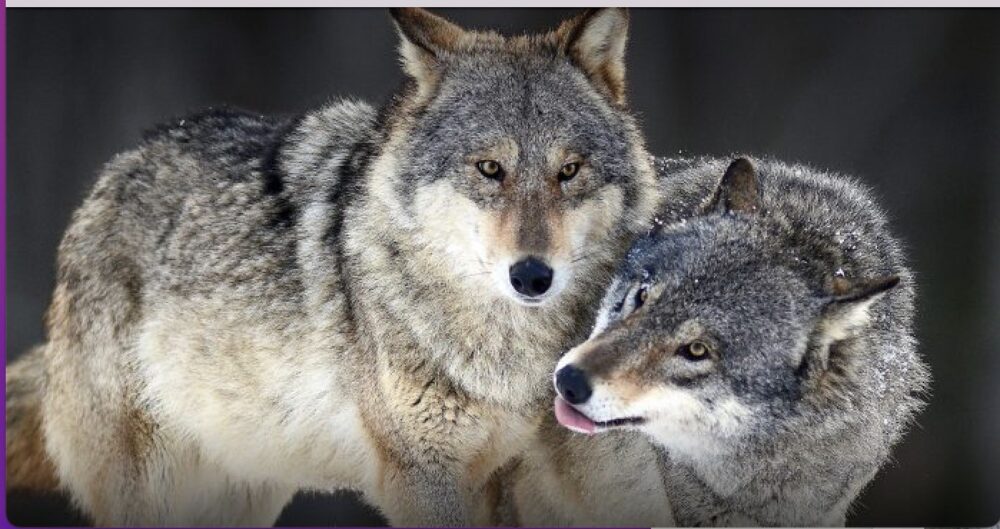IN BOLZANO, THE DECISION OF THE PRESIDENT OF THE AUTONOMOUS PROVINCE TO AUTHORIZE THE KILLING OF TWO WOLVES IN RESPONSE TO DAMAGE CAUSED TO FLOCKS HAS TRIGGERED A HEAVY DEBATE BETWEEN ENVIRONMENTAL CONSERVATION NEEDS AND LOCAL INTERESTS. THE ANIMALIST ASSOCIATIONS, INCLUDING ENPA AND LAV, HAVE SUBMITTED AN APPEAL TO THE TAR, WHICH HAS TEMPORARILY SUSPENDED “THE EXECUTION”
In Bolzano, animal rights activists intervene to protect wolves
On August 13, 2024, the president of the Autonomous Province of Bolzano, Arno Kompatscherauthorized the killing of two wolves in response to a series of attacks on flocks, especially in Val Venosta. This decision was aimed at preventing further damage to livestock farms and protecting the interests of local farmers.
Kompatscher’s decision immediately sparked a heated debate and received strong opposition from animal rights groups.
On August 14, 2024, ENPA (National Animal Protection Agency) e LAV (Anti Vivisection League) have presented an appeal to the Regional Administrative Court (TAR) of Trentino-Alto Adige/Südtirol. The associations contested the decision on two main fronts.
The irregularities highlighted by animal rights activists
First, animal rights activists criticized the provincial law that authorized the killing of wolves, believing it to be in conflict with European Union Habitats Directive.
This provincial law, which allows the killing of wolves withoutadoption of adequate preventive measures such as electrified fences o guardian dogswould be incompatible with European regulations that protect wolves as a protected species.
The Habitats Directive establishes that thekilling of wolves should only be regarded as last resortafter trying all other management and protection solutions.
Secondly, the associations raised doubts about the effectiveness of the preventive measures adopted by farmers. Official documents revealed that the protective measures were insufficientwith the use of herding dogsthat is, those who herd the flocks, instead of guard dogs, like the Maremma, specialized in protecting the flocks.
In short, before resorting to killing wolves, all the necessary preventive measures should have been adopted to reduce the risk of predation.
The case attracted the attention of various actors at regional, national and international levels. But what did the TAR establish?
The TAR’s response and the current situation
On 10 September 2024, the Regional Administrative Court (TAR) of Bolzano accepted the appeal presented by ENPA and LAV, temporarily suspending the order that authorized the killing of the two wolves. The judges postponed the discussion on the merits of the matter until January 29th.
In the meantime, the TAR has scheduled a council chamber for 25 September 2024, during which it will examine the legitimacy of the ordinance in more depth and decide whether to confirm the suspension or revoke it.
The outcome of the next hearing will be crucial to define future wolf management policies and to establish whether the province of Bolzano will have to review its practices in light of European regulations and environmental protection needs.
The response of animal rights activists and the attitude of the province
The controversy has highlighted tensions between wildlife conservation and the concerns of local ranchers. The temporary suspension of the wolf killing ordinance represented a temporary victory for animal rights associations such as ENPA and LAV.
They welcomed the court’s decision, interpreting it as an acknowledgment of their concerns and a step towards more sustainable wildlife management.
Despite this achievement, the provincial government has shown some resistance to the required changes. Local authorities have defended their policies and continue to maintain that the measures taken are adequate to manage conflicts between wolves and farmers.
This attitude reflects a conservative vision of wildlife management, which could be further tested by increasing pressure from conservation organizations and national and European institutions.
In short, the situation remains evolving. But why is it so important to protect these species?
The importance of protecting wolves
Protect i wolves it is fundamental not only for the well-being of ecosystems but also for biodiversity in general.
First of all, these animals are apex predators, which means they occupy a top position in the food chain. Without them, herbivorous species could proliferate excessivelycausing significant damage to vegetation and altering the ecological balance of habitats.
This process, known as effect “trophic cascade”is essential for the creation and maintenance of healthy and biodiverse habitats.
These magnificent animals are symbols of strength and intelligence in many cultures and their conservation can have indirect economic benefits, such as ecological tourismwhich can lead to greater environmental awareness and support local communities through the income generated bywildlife observation.
Finally, to dispel a common myth: there are no bad wolves, just stories that need a bit of revision! Wolves are guardians of our ecosystems and they deserve protection that goes beyond fairy tales.

